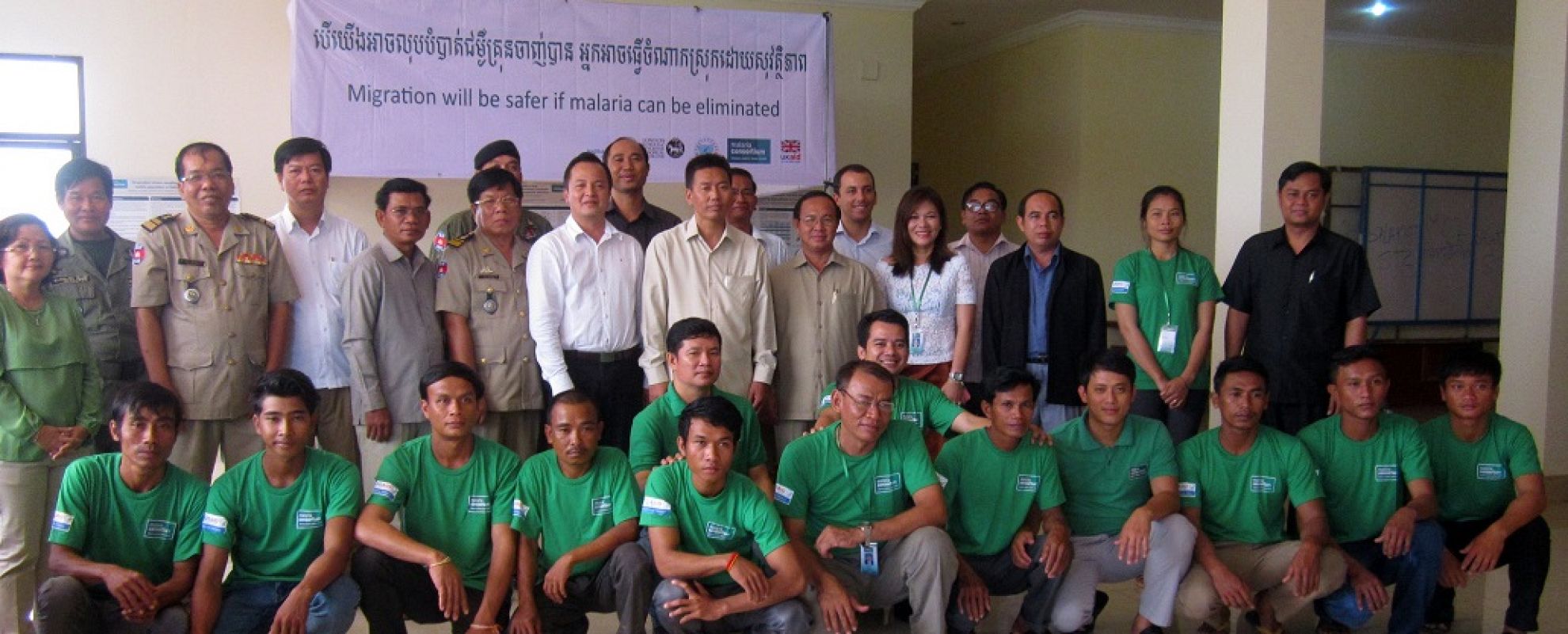
Measuring malaria among border-crossers in Southeast Asia
5 November 2015In September, Malaria Consortium launched the second phase of its cross-border project in Stung Treng province, Cambodia. This new study will build on the work of a project that ended last year, which investigated the impact of mobile and migrant populations on the spread of artemisinin resistant malaria by screening people both at formal checkpoints and informal border posts.
In recent years, drug-resistant malaria has been an increasing cause for concern for countries in the Greater Mekong Subregion, with governments stepping up efforts to halt its spread. Our previous study indicated that over 62 percent of cross-border travellers demonstrated artemisinin resistance, indicating the need to target such populations to control the spread of artemisinin resistance more widely across the region.
The current project, led by Malaria Consortium in collaboration with the National Centre for Malaria Control, Parasitology and Entomology (CNM), and with funding support from UK aid from the UK government, will compare malaria trends among mobile and migrant populations who cross at formal and informal border crossing sites along the Cambodia-Laos border. The results and lessons learnt will be shared at the national and provincial levels to support decision making on how to strengthen surveillance methods for malaria elimination and drug-resistant parasites.
The opening ceremony was held at Stung Treng Province city hall. Several key stakeholders participated in the event, including his Excellency Vice Governor Yong Sovatana, Deputy Director of CNM Dr Lek Disoley, the Director of Stung Treng Public Health Department and police chiefs from each of the checkpoints. The chief of the international checkpoint, Mr Chao Monyra, said he was delighted that Stung Treng was selected as the focus area for the study, as the location has a high malaria incidence rate.
Following the official launch of phase II, malaria mobile workers (MMWs) completed a four-day field practice training using measurement tools for malaria. They will test and collect dry blood spots of all consenting border crossers for further analysis in the lab. The results will be immediately provided to participants.
The border screening is set to begin later in September and will last until the end of March 2016. Screening booths will be set up at international checkpoints and at another four informal border posts initially, and will later be scaled up to a further three border posts.
Country: Cambodia
Keywords: Diagnosis | Drug resistance | Surveillance | Advocacy and policy
Latest news
- International summit calls for AMR accountability in public health interventions21st March 2024
- Global SMC community celebrates new milestone at SMC Alliance Annual Meeting in Nigeria6th March 2024
- Scaling up key interventions could halve pneumonia-related childhood mortality13th February 2024
- Malaria Consortium and eGov Foundation join Mozambique’s national malaria programme to digitalise seasonal malaria chemoprevention campaigns8th February 2024
- World’s first malaria vaccine rollout launched in Cameroon22nd January 2024
- Digital solutions driving equitable access to health6th December 2023